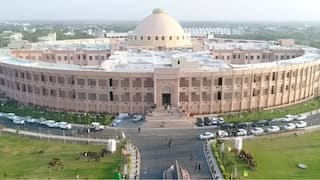Flag Adoption Day 2022: From Origin To Significance, Here's All You Need To Know About The Tricolour
The journey of the Indian flag earlier symbolised the struggle for liberation and today it symbolises a free India.

New Delhi: India marks the Flag Adoption Day on July 22 as the Tricolour was adopted in its present form during the meeting of Constituent Assembly on this day in the year 1947.
A Brief History of the National Flag
The Indian national flag, which is most similar to the current one, was created in 1923 by Pingali Venkayya, with saffron, white, green stripes and the spinning wheel positioned in the white area.
It was raised in Nagpur on April 13, 1923, as part of a ceremony honouring the Jallianwallah Bagh Massacre. This flag, known as the Swaraj flag, was adopted by the Constituent Assembly on 22 July 1947, 24 days before the Independence of India.
The journey of the Indian flag earlier symbolised the struggle for liberation and today it symbolises a free India.
In the year 1904, the first ever Indian flag that came into existence was designed by Sister Nivedita, which had two colours - red and yellow. Then came the flag that was hoisted at the Parsee Bagan Square, Calcutta on 7th August 1906, which had three equal horizontal stripes or bands of blue, yellow and red colour. There were many such variations of the flag until the Tricolour came.
Significance of colours of the Indian National flag
The National flag of India is a horizontal tricolour of deep saffron at the top, white in the middle and dark green at the bottom in equal proportion. The ratio of width of the national flag to its length is two to three.
Each colour of the flag has a meaning. The saffron represents strength and courage, white indicates peace and truth with the Dharma Chakra, and green shows fertility, growth and auspiciousness.
The chakra has 24 spokes that stand for the 24 hours of the day and the constant advancement of our nation. The Mauryan Emperor Ashoka was the owner of the Ashoka chakra, often known as the "wheel of law," in the third century BC.
It is to be noted that the Government has declared that the National Flag should be made of Khadi (cotton) only.
Flag Code
According to the Flag Code, Indian residents were not permitted to hoist the national flag of India over their residences or places of business on any given day. However, on January 26, 2002, this code was modified, granting Indian citizens the permission to hoist the National Flag on any day of the year, adhering to the rules outlined for the flag in the Flag Code.






































